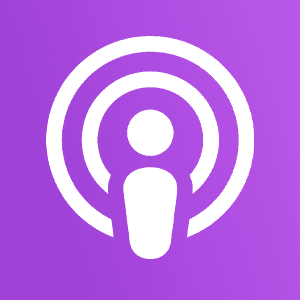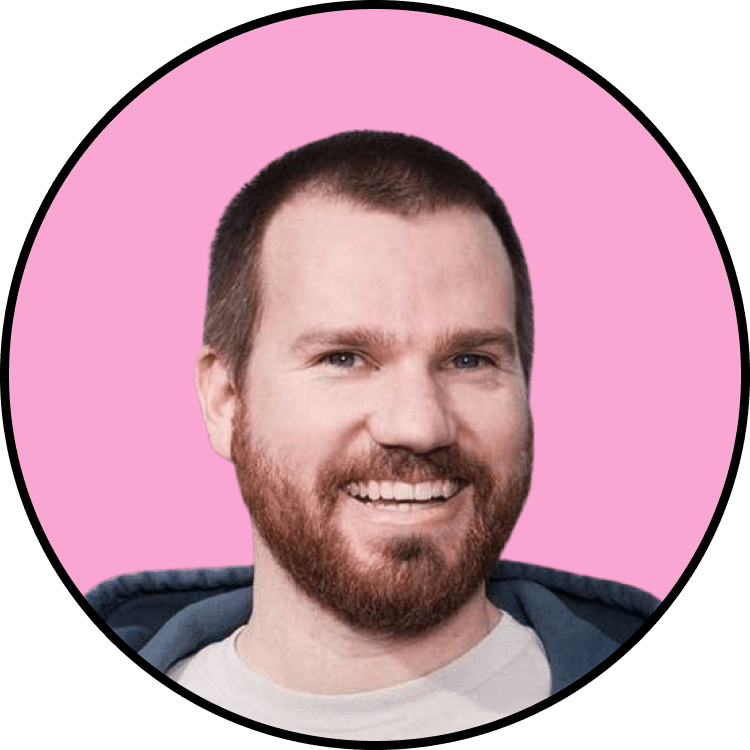We discuss a new term on the rise, "Service as Software", and what it means for marketers and knowledge workers. Admittedly less devtool-focused than normal - let's blame the election news cycle for that :P
November 18, 2024
-
12
mins
NOTES:
TRANSCRIPT:
I gotta say, like, Hank inspired me to quit my job, and then he went and unquit his job, you know, by getting another job, so, you know, congrats, we swapped. I gave him so much shit for taking another one, eh? I couldn't, I couldn't resist. It's too good to pass up. You can't, you can't resist. It's all good. One of us has to be on the dark side, you know?
We can't all be on the And, and, you know, Hi everybody. And welcome to another episode of go to market this time. We're going to try something different and we're bringing guests. But we're gonna do it a bit differently because everybody brings guests to just interview them and i'm fed up I don't want any more like interview podcast.
So we're doing something different What we're doing is we're actually inviting our friend marcel here for three episodes in a row And the idea is to start doing that Marcel was the CMO at Scale. ai, he was the CMO at Deepgram, now he has GrowthX and he's knee deep into AI. And with this week, with election topics, there's not many things that happen this week, so we wanted to bring him in to talk a bit more about AI, given that everybody talks about AI.
Thanks for having me. a term, that I'm not very familiar with service as software. Can you guys tell me what this is and what's going on with this? You shared a tweet. Yeah. Um, I I'm obsessed with this topic mostly because, uh, it's why I quit my job. Uh, so actually, uh, Scott CEO, founder of Deepgram, I think it was last year.
Um, he said something to me that was kind of, um, kind of really got me thinking. He's like, you know, what would happen if every single employee at a company had a hundred GPUs. At their disposal running 24 seven and Sam Altman also in that day recently like mentioned something kind of like that. My NVIDIA stock would do it as well.
And it got me thinking, it's like the paradigm would change completely, right? As you're thinking about that, you have these essentially like super intelligence engines running 24 seven at your disposal that keep getting more powerful and better, you know? Um, and so fast forward a little bit, um, you know, SaaS is so crowded.
There's a lot of infrastructure companies out there. Some are really useful. Others are kind of struggling with distribution and finding a market, right? Um, and then you see services and it's just like 4. 3 trillion a year. Sales and marketing services alone is like two to three hundred billion a year each.
Like, you know, and, and when you look at that and as a CMO myself, right, I've never worked with an agency that, uh, or very few that I was just like excited about that were over delivering that weren't crazy expensive and I'm like, Hey, I think there's this huge potential here to find the different jobs to be done that people already have budgets for services and you can come and offer a service for way higher quality, higher velocity.
cheaper and still have softer margins. Like right now we have, you know, 70 percent plus margins and we're like 30 to 40 percent profitability, you know, which is like more than Microsoft or Apple out there as public companies. Right. And so, so I think there's this huge potential and then more founders, I'm talking to, they're seeing the same thing, you know, but I'll pause here, but yeah.
But what is it like if, if I hear this term service as software, is that just meaning a , like humans are doing the work. But they're leveraging software in a way that gives them higher leverage, higher margin than traditional services. In my mind, I think it's in the middle where you have like a company builds some proprietary software, in most cases using AI, that will do a lot of the job, but you have a human in the middle who will adapt that to very specific functions and use cases.
I think great examples of this could be Palantir, it could be Gradient, where now they sell like, for example, Gradient sells like services on how to improve your processes, but those services include a big part, which is the software that they built that is used underneath. So one easy way to understand it or to think about it is like executive assistants, like an executive assistant.
You could have a service as a software where there's some software that helps be an assistant, but it's fine tuned or it's done in a specific way. So it actually fits your specific vertical or your, your specific use case. I think. Marcel, this is what you do at GrowthX. You build a layer of software and prompts to do whatever.
But then you have humans customizing that per client. Is that the right way to think about service as a software or service as software? Yeah, it is. I think it's kind of like saying, hey, I'm signing up for a job to be done. Whatever that job is, if that job is Publishing high quality content at high velocity.
If that job is doing highly personalized outbound or whatever it is, I'm signing up for a job to be done, right? That normally I would either hire a person to do it, a team of people to do it or an agency, a consultant, a freelancer or a group of people, right? Um, and then you're working backwards from the job to be done to the workflow.
And when I mean by workflow, I mean like, what are the steps that it takes to do the work product? That you're signing up for the job to be done, right? Like, let's say publishing an article, right? A really high quality article. It's like, Hey, I got to go do research. I got to do this. I got to do that. I got to write a brief.
I got to write an outline. I got to do and then I got to write it this way. And then I got to adapt it, right? I got to fact check it. And then you're taking experts like let's say myself or you know, and then humans in the loop to do some of the things that are not yet fully automated. And then you're taking AI in software automation, a bunch of other things, technology overall.
And you're applying and decomposing that that job to be done in that workflow, right? Um, and I'm seeing that come across like multiple different places. And I think companies like I think like Harvey and a few others have done similar things in like the legal space or within the legal function, right?
Um, I think in health care, there's some companies trying to tackle it that way. Um, and so it's really, really interesting because last thing I'll say here is by doing this, You are essentially getting paid to find product market fit and figure out what do you need to build and whatever that end product becomes The validation is already there because you know exactly what needs to be done in order to deliver a really good work product I think what's fascinating about this is that for service as a software, the go to market will change because I see different types of companies like this.
On one side, you have the Harveys of the world that are replacing first one specific function in legal, and then they are moving to others. So in that case, it's like, okay, this is a specific use case in Gradient where they are more like an operational, like a company that helps with improving your operations.
I know they go one vertical at a time where maybe they start with health care, then they move to financial services and for each you have to do something different. And I think. A lot about how important habits are for this, because now these new companies are, as you're saying, replacing a job to be done.
So then the question on how to go to market for a service as a software is, okay, when a person is doing this, what do they do? What are their steps? For example, for writing a good piece of content, they need to start with research. How do they do that research? Then they need to write the outline. Where do they write the outline?
And I think if you really understand those, that's how you market your service. Because, for example, if your services will do all of this, then when somebody's researching some specific topics, I could show examples on research for specific topics that I care. Or maybe writing content on how to do better research.
Or something like that. Then, for example, if I'm, um, writing an outline as part of this process that you're replacing, then maybe I can show an ad on the tool that the person is using to write the outline where it's, I don't know, a Google doc or something else. But I think starting to think about like if I replace a specific job function, if I can show up as, as the person does that job, job function right now, that's the way that I can basically sell my services and show them how to do it, which I think makes it a bit easier than before.
Yeah, I think if people understand this service as software concept, it'll really change the types of agencies they hire. Shout out to Marcel. Um, it'll also really change how they instruct their employees to move and how they leverage their humans that they have full time already or part time because people really can do so much more than they're doing.
If, if they really just think through those things you just talked about Gonto, like if they really break down their processes and think about each step and what they could do differently today with the tech they have, and they could do a lot more and probably with even fewer SaaS services than has been traditionally used and purchased.
Um, yeah, it's true. Like there's been a few sass that popped up here and there and I'm like, I built that workflow in like a day, like, and it's like, you know, and that's their entire company. They raised the big series a and I'm like, all right, cool. Like a Deepgram, we have that running and we built it and we can continue to make it better.
Right. Uh, but I think the learning curve is also pretty, pretty steep. Uh, but I will say like one of my fundamental beliefs right now is that every single knowledge worker is going to need to figure out a way to retool themselves pretty, pretty hardcore for the next, in the next 12 to 18 months and the ones that don't like will just, you know, fall behind and be 10 to 100 times less productive, but the learning curve is not like 30 minutes in between meetings, two, three times a week, the learning curve is like a thousand hours learning now and maybe it becomes a hundred hours, but that's still a pretty steep learning curve.
Okay. That most knowledge workers are not going through right now. Yeah. The learning curve is steep, but that's the advantage. Like if you can, if you can get a head start, you've still got years before people figure this out. I mean, GPT 3. 5 came out, um, a year or two years ago and people still haven't figured out how to insert it into their workflows properly, aside from like occasionally replacing a Google search.
Uh, but I think we have. a huge marketing opportunity on most companies that are doing now services software only focus on the people who are looking to learn AI or looking to learn how to do their jobs faster. And I think Even though we don't see it, maybe in Silicon Valley, most people in the world are not looking how to do their job faster or just looking like, how can I get my job done and go drink whiskey or play golf or whatever?
And I think the opportunity of service as a software is showing up to those people, to their habits when they are not really searching how to do something better, but as they are doing it, if we can show ads or show up then, and to them, the pitch is different. It's like, okay, you can actually work less.
or be more relaxed by doing this. And I think going into that market is when service as software will become mainstream right now. It's not mainstream because they are only focused on people who deeply care about improving their productivity, which is not most. Yeah. It's, I mean, it's the same to me as a lot of software, a lot of marketing automation, like basic marketing automation still isn't used properly.
Um, a lot of people still don't, Send basic emails or have good basic SDR flows, et cetera. And so even today you can differentiate just by getting good on those. It's also like kind of changes the way you approach hiring, you know, and maybe that's a topic for, for next time. Um, because I think I can talk for like a whole hour on some of our lessons learned as well, but, um, but this is fun.
Yeah. Well, and we'll have you back a couple more times. All right. I think that's it. Thank you everybody for coming. And exactly. Thank you, Marcel, for coming. Thank you all for having me. Excited for the next one. Cheers.
Code to Market
A podcast where Hank & Gonto discuss the latest in developer marketing.






